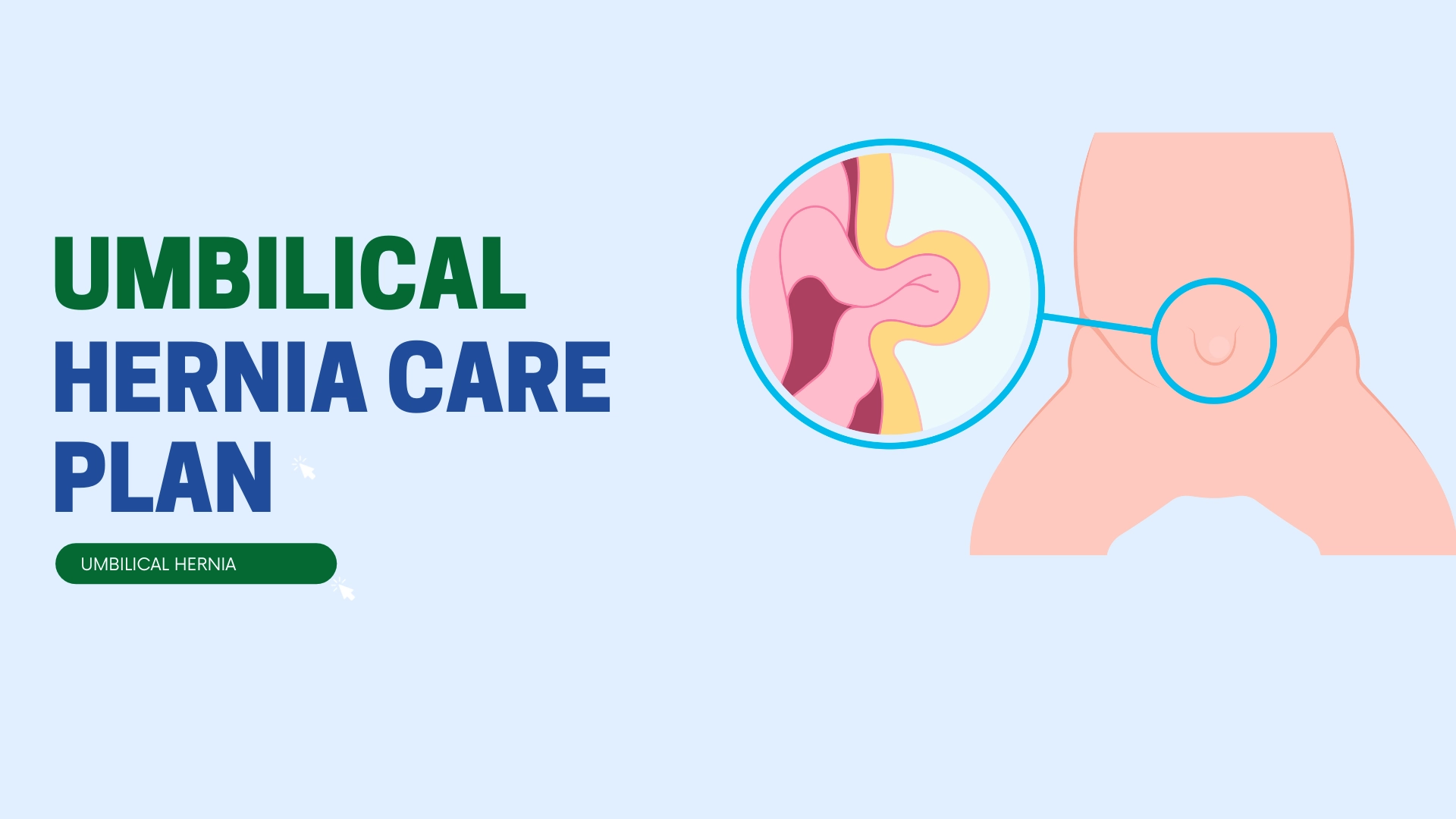A part of the small intestine or fatty tissue can push through a thin abdominal wall at the navel to cause an umbilical hernia. This very frequent health problem results in a conspicuous protrusion.
Although this illness frequently affects young children, it can also impact adults. Let’s first look at what one is to better understand umbilical hernias and the complete treatment plan for controlling them.
Nursing Care Plans for Umbilical Hernia
The most important nursing intervention entails determining the patient’s pain level by verbal or non-verbal cues, including weeping or changes in facial expression.
This aids in locating the source of the pain and putting effective treatments into action to lessen it. According to the patient’s hernia nursing care plan, a qualified nurse can give the patient pain medicine orally or intravenously.
Making sure the patient is comfortable might help control their post-operative discomfort. The nurse’s training includes a nursing care plan for umbilical hernias, enabling them to assist parents in caring for their children.
Following surgery, the patient is helped to restore their diet under the competent direction of the nurse, starting with ice chips and water and working their way up to meals.
Training parents is also essential since a youngster who is in discomfort may not eat correctly. As part of the nursing care plan for hernia, the nurse might instruct them on handling, feeding, or changing the kid’s diapers.
Ice compressing to the afflicted regions to minimise swelling is a typical pain treatment technique. This aids in giving the patient the support and direction they need during this trying time.
Umbilical Hernia care plan at home
Look for any indications that the hernia may be creating issues. Your tummy may enlarge, and the hernia’s surrounding skin may get red. The hernia may cause you to feel pressure, bulging, or discomfort. Do not hesitate to call your doctor as soon as you notice any of these symptoms.
What are the major things to consider in the umbilical hernia care plan?
Look for any indications that the hernia may be creating issues. Your tummy may enlarge, and the hernia’s surrounding skin may get red. The hernia may cause you to feel pressure, bulging, or discomfort. Do not hesitate to call the Best Hernia Surgeon as soon as you notice any of these symptoms.
Preventing Injury and Swelling
Assessing a baby for a hernia entails palpating for swelling, discomfort, and symptoms, including an enlarged abdomen, lack of appetite, agitation, and altered faeces.
It could show partial or total occlusion brought on by confinement and strangling. Parents are recommended to hold and feed the child to stop the baby from screaming and push the bowel into the sac.
To avoid straining, the doctor gives parents nutritional recommendations for inclusion and exclusion, as well as changes to the diet to avoid constipation and elevated intraabdominal pressure.
Surgery might be anticipated if a hernia is present before problems arise. The doctor discusses the prognosis, evaluates the patient’s symptoms, monitors their vital signs, and checks laboratory results to spot fluid loss and electrolyte abnormalities.
The medical professional keeps the patient in the NPO position, gives the digestive system some rest, and gives IV nutrition as directed. The doctor gives parents instructions on the reasons for nausea and vomiting, indicators of dehydration, and when to report them to the doctor while also giving them antiemetics.
Managing Postoperative Pain
Umbilical and inguinal hernias frequently experience acute discomfort following surgical treatment; this pain can be brought on by trauma, manipulation, inflammation, and nerve injury.
Determine the need for analgesic therapy, assess incision pain and nonverbal signs of pain, maintain a comfortable position, apply ice compresses, provide support to the buttocks, avoid strain and pull on the incision site, encourage frequent diaper changes, provide toys and games for quiet play, and instruct parents to hold the infant during feeding or burp to expel swallowed air.
It is also important to encourage frequent diaper changes. Provide analgesics suitable for the age and pain intensity, and instruct parents about the sources of pain and the remedies needed to treat it. This will lessen any discomfort and suffering brought on by the incision.
Conclusion
In conclusion, successful management of umbilical hernias requires a well-structured care plan. Patients can anticipate a better and healthier future by tackling the problem from various perspectives, including medical therapy, lifestyle modifications, and emotional support.





